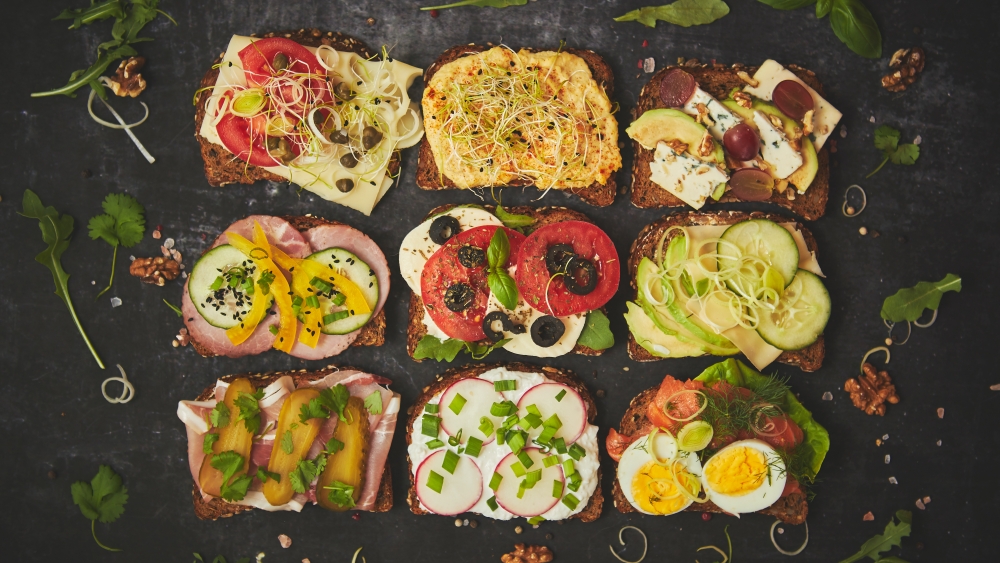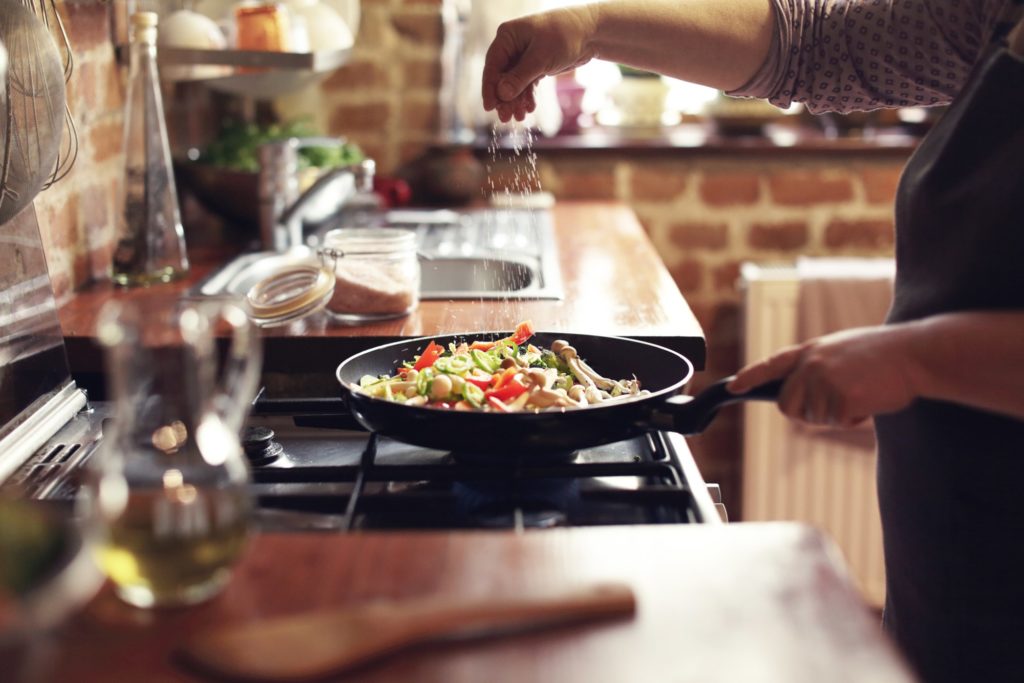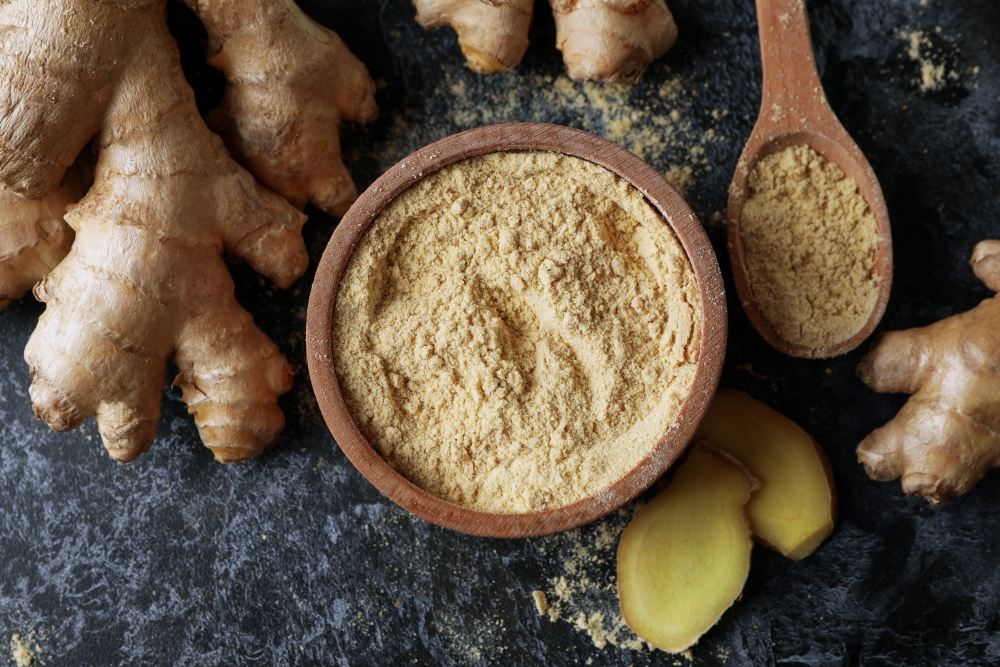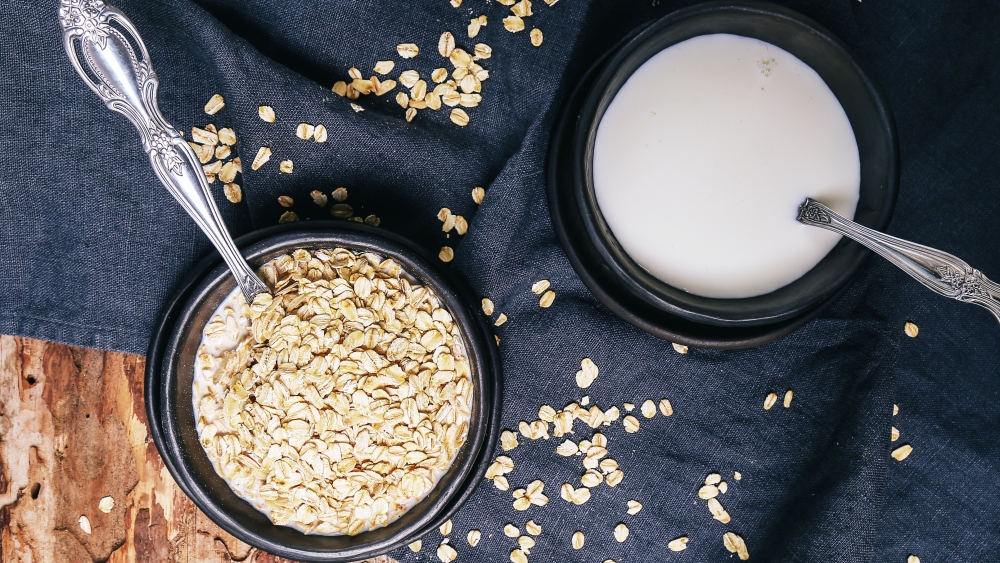A healthy breakfast should be balanced and provide a combination of carbohydrates, protein, healthy fats and fibres. Here are some key foods that can be included in a healthy breakfast:
- Complex carbohydrates: Opt for sources of complex carbohydrates such as whole grains (like whole oats, quinoa, buckwheat, wheat bran), whole grain breads or fresh fruit. These provide long-term energy and help keep you feeling full.
- Protein: Include sources of protein at breakfast, such as eggs, Greek yogurt, cheese, tofu or nuts. Protein is essential for maintaining muscle mass, boosting satiety and maintaining energy levels.
- Healthy fats: Add sources of healthy fats such as avocado, seeds (chia, sesame, flax), nuts, olive oil or coconut oil to your diet. Healthy fats are important for heart health, absorption of fat-soluble vitamins and maintaining healthy skin and hair.
- Fibre: Eat high-fibre foods for healthy digestion and to maintain satiety. Fresh fruit and vegetables, seeds, nuts and wholegrains are excellent sources of fibre.
- Hydration: Make sure you drink enough water or other healthy fluids such as tea or milk. Proper hydration is essential for optimal body function.
A healthy breakfast might consist of wholegrain oats with Greek yogurt and fresh fruit, for example, or scrambled eggs with avocado and wholegrain toast. But it's important to tailor your breakfast to your personal preferences and individual nutritional needs.
More protein for breakfast and less carbs
In recent years, the importance of eating protein for breakfast has become more and more important, especially among people who follow a healthy lifestyle or who want to lose weight. Eating protein for breakfast can have several benefits, including:
- Longer feeling of satiety: Protein is digested more slowly than carbohydrates, which can help to maintain satiety over a longer period and reduce daytime cravings.
- Maintaining muscle mass: Eating protein for breakfast can help maintain and increase muscle mass, which is important for overall health and basal metabolism.
- Controlling blood sugar levels: Protein can help stabilise blood sugar levels, reducing the risk of high blood sugar fluctuations.
In terms of reducing carbohydrates and sweets at breakfast, this can be beneficial for people who want to control blood sugar levels, reduce calorie intake or manage body weight. Choosing healthy sources of protein, such as eggs, Greek yoghurt, cheese or nuts, to replace foods high in processed carbohydrates or sweets can help improve the quality of your diet and overall health.
It is important to mention that everyone is different and nutritional needs may vary according to age, gender, physical activity level and other individual factors. It is therefore always advisable to consult a nutrition specialist or doctor before making significant changes to your diet.

Oatmeal for breakfast?
Oats are often considered a healthy breakfast food. It is rich in fibre, protein and nutrients such as iron and magnesium. However, it is important to recognise that the role of oats in breakfast can vary depending on individual preferences, nutritional needs and body reactions. For some, eating oats for breakfast can be a healthy and nutritious choice, providing a sustainable source of energy and benefits for digestive and metabolic health. On the other hand, for others, there is a possibility that oats may cause fluctuations in blood sugar levels or may not be well tolerated. If you have questions or concerns about eating oats for breakfast or in your diet in general, talk to a nutritionist for further advice and information. The key is to enjoy a diet that supports your long-term health and well-being.
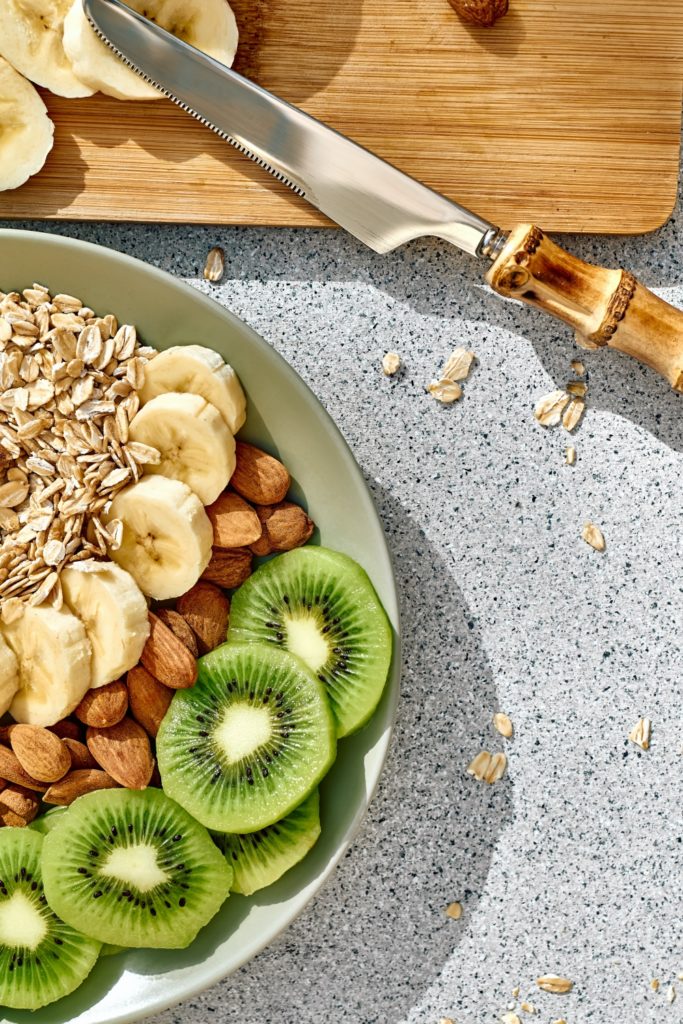
Breakfast in the intermittent fasting era
In the era of intermittent fasting and in the context of different eating styles, perceptions of the importance of breakfast may vary according to individual preferences and health goals. Although traditionally breakfast was (and still is) considered the most important meal of the day, this view is challenged by many people today.
In intermittent fasting, for example, there are several variations, and some involve "skipping" breakfast, focusing on eating in a smaller window of time during the day. These diets can include 16/8 fasting (eating in an 8-hour time slot, followed by a 16-hour fast), alternate-day fasting (alternating eating days with fasting days) or other variations.
For people on such a diet, breakfast is intentionally omitted and its importance may be diminished in favour of other meals of the day. However, it is important to point out that each person's body has its own needs and reactions to different eating styles.
Some argue that breakfast is essential for starting the day with energy and boosting metabolism, while others believe that the body's ability to burn fat is enhanced during fasting and that skipping breakfast can be beneficial for weight loss and metabolic health.
Ultimately, each person must choose the diet that best suits their individual needs and preferences, taking into account medical and nutritional advice and recommendations. Consultation with a nutrition specialist or doctor can provide additional guidance and personalised information regarding eating habits and general health.
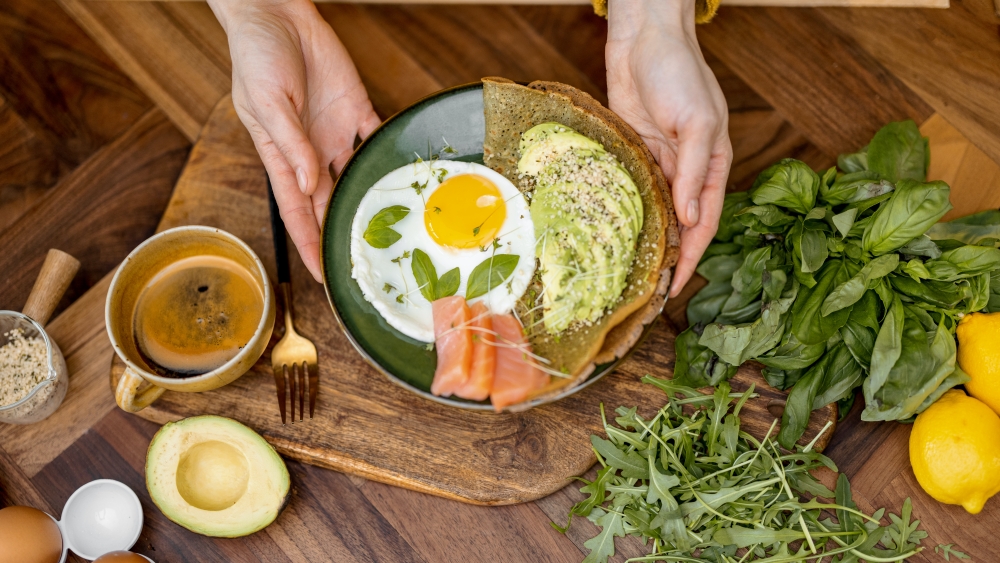
What contains a breakfast or the first meal in intermittent fasting
A breakfast or rather the first meal of the day for an intermittent fasting person can vary depending on individual preferences and the specific fasting regime they follow. In general, when eating the first meal of the day after a fasting interval, it is important to choose nutritious and tasty foods to ensure the necessary intake of nutrients and energy.
Here are some options for a suitable breakfast during intermittent fasting:
- High protein breakfast: Eating an adequate amount of protein at breakfast can help keep you feeling full throughout the day and support muscle mass. One option would be to eat boiled or scrambled eggs, Greek yoghurt with seeds or berries, or a protein smoothie with plant or whey protein.
- Breakfast based on healthy fats: Healthy fats can provide a sustainable source of energy and help maintain satiety during fasting. Opt for avocados, nuts, seeds, coconut butter or natural peanut butter to add healthy fats to your breakfast.
- Low carb breakfast: Reducing carbohydrate intake at breakfast can help keep insulin levels low and promote fat burning. Include low-carb vegetables, such as spinach, broccoli or mushrooms, and lean protein, such as salmon or turkey, for a healthy and balanced breakfast.
- Balanced breakfast: Combine foods from the three macronutrients (protein, fat and carbohydrates) for a balanced and nutritious breakfast. For example, you could try a bowl of wholegrain oatmeal, fresh fruit and seeds, or an omelette with vegetables and avocado.
It's important to listen to your body's signals and choose foods that make you feel good and support your health and fitness goals during intermittent fasting. Consult a nutrition specialist or doctor for personalized recommendations based on your individual needs and health status.

